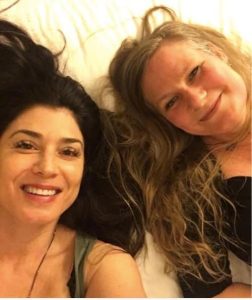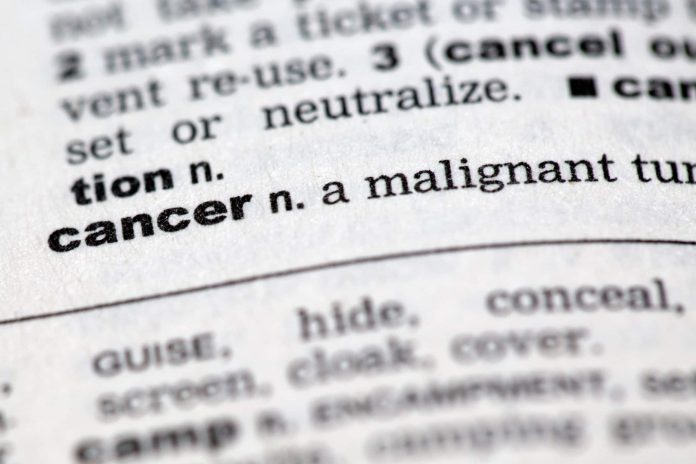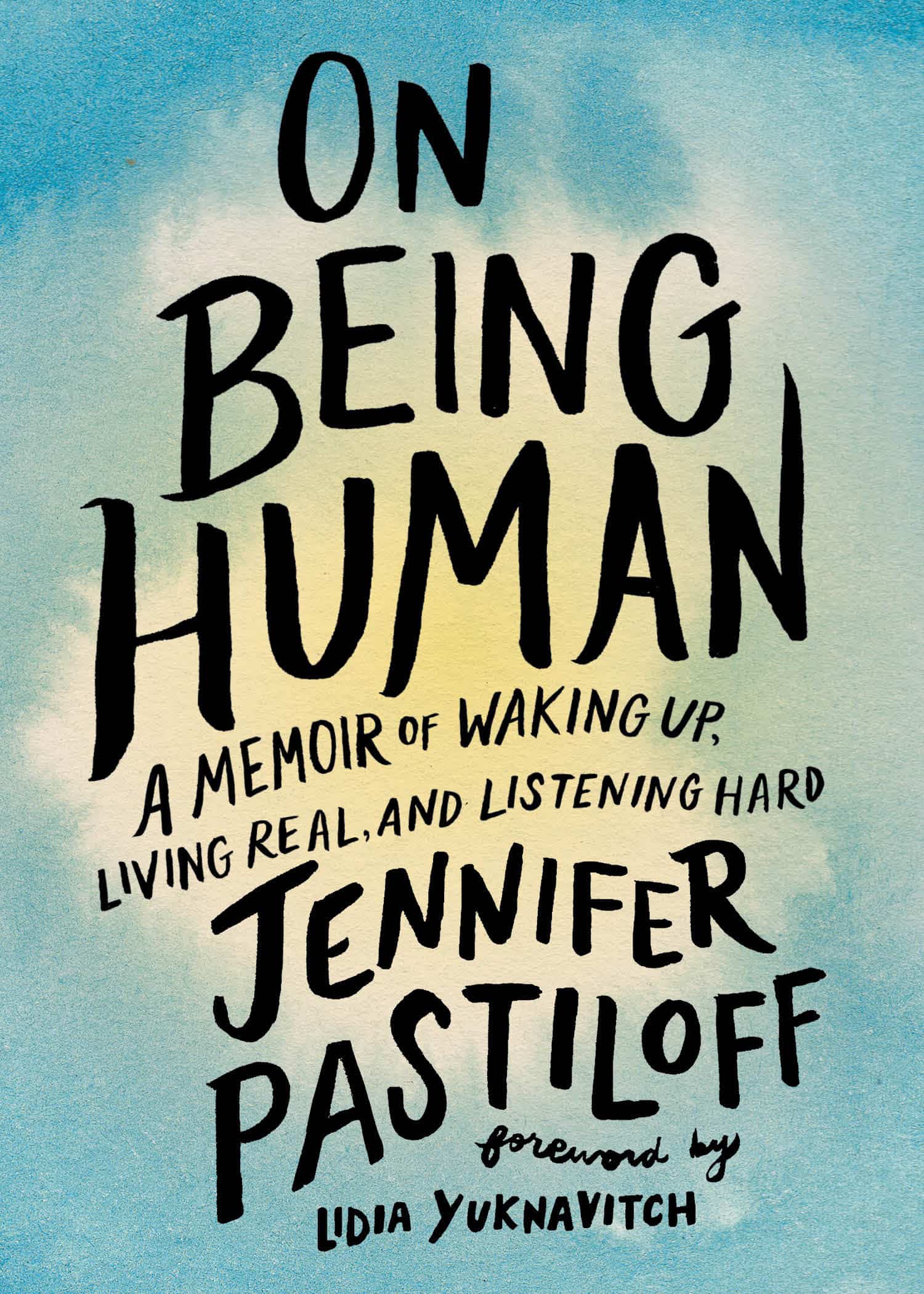By Mara Buck
“Nothing succeeds like excess.” Oscar Wilde
“Less is more.” Ludwig Mies van der Rohe
“Nobody survives like a smart-ass.” Mara Buck
Life is a combination of infinite causes and incalculable effects, each effect becoming the compilation and accumulation of its own unique history, yet stubbornly we continue to seek out the potential “easy-way-out-one-size-fits-all” solution. Unfortunately this seldom works—or works for long. We humans are tribal, invariably depending on the collective wisdom of the tribe to care for us, but no single answer proves the best answer for everyone.
There are no easy answers for dealing with cancer either—no rules. Cancer is as individualistic as the person whose cells are multiplying out of control, as distinctive as a smile across a luncheon table, as personal as a phone call in the night, as alienating as a closing door.
I’ve always been a reader. Books are true and trusted friends, so when I was diagnosed with breast cancer eighteen years ago, I bought every available book on the disease. The accuracy and relevancy of the information was somewhat questionable (The Cure For All Cancers?!?) but I devoured the Cancer Gospels anyway, until I found what I really craved was a strong fictional character to be a friend in the night, an inspiration, a positive role model. I came up empty. The cancer heroines in the novels at that time all died meaningfully in the end. In the movie versions of those books, winsome Ali MacGraw, feisty Debra Winger, and even the lovely Meryl all succumbed as grist for the mill of weepy sentiment. Bull, said I. Not me! So I wrote my own novel, created a character who lived and thrived and swore and had her honest ups and downs. Even now I find myself asking what she might do in a difficult situation, this imaginary friend trapped within a paper manuscript. She continues to offer good advice, a willing shoulder to lean on, and even a belly-laugh or two. Don’t discount your own inner friend when others disappoint. An excerpt from my manuscript “Highway To Oblivion…”
True to her vow to change and expand and share according to the Great Gospels of the cancer literature, Others To Know followed in rapid succession. The responses were a touch weepy, protectively shocked, filled with vague promises to do “anything I can,” and once she put down the receiver, she was alone again. Not numerous, these best friends, her only remaining family. She’d known most of them throughout her life, celebrated weddings and endured funerals, and felt secure that those who loved her would support her. Asking each one in turn to accompany her to the surgeon’s ominous live-or-die conference the next day, she was genuinely unprepared for the inventiveness of the excuses.
“Gee, I’d love to go with you, but I have to shop for a bridal gift. Can you imagine—I’ve left it ‘til the last minute, as usual. You know me.” This, with a hearty chuckle.
“I want to take some time off next week to have the furnace cleaned, so I don’t dare ask for tomorrow.”
And this, which would in retrospect become her favorite, “Tomorrow? Oh, we’re having a baby shower at the office and I’m supposed to give a toast. I could go with you the next day, I think. But you probably don’t want to wait, do you?” Bingo!
“Looks like it’s you an’ me, babe,” she said to the dog. “It always was.”*
People, people, people! Don’t do that to your best friend with cancer. Don’t trivialize the situation. Whenever I get up the courage to ask you to join my world however briefly, drop your petty tasks and support me. And realize I’ll see the shallow excuses for just what they are. Is it worth losing a lifelong friend to bake a batch of brownies for the church bazaar?
Never, never, never lecture me on what might have been, although “now it’s too late.” No, it’s never too late as long as there’s breath and a heartbeat, at least for me. When one of my best friends chose my chemo weakness to finally seize the upper hand, to recount all my past transgressions, to bully me into believing I somehow got what I deserved, I kicked our relationship to the curb once I could pull my boots on over my swollen feet. It’s been years since she treated me to her one-sided tirade and I don’t mourn our past friendship in the slightest. Don’t, don’t, don’t choose my temporary cancer weakness as an opportunity to play Gotcha! It’s cruel and hurtful.
When you talk about my cancer, if dumb words should fly from your lips, own up to your stupidity. Just say, “That was dumb!” and I’ll say, “Yeah, but I know you meant well.” Don’t make a big deal of it. Don’t ask for my forgiveness as if you’ve insulted a dying person; just treat your comment as if our friendship is on normal footing and move on. I promise I will.
If you discover that I’ve had cancer, don’t say, “My Aunt Judy had cancer” and continue to explore the intricacies of “poor dear Judy’s brave battle,” reducing my own life to an adjunct, invalidating and eliminating my unique experience. Don’t do this. Instead ask, “Do you like the new cancer center? I’ve heard they have wonderful scones in the cafeteria.” Be impersonal but not dismissive. I’m not an entertaining curiosity, not a conduit for your memories of cancer-patients-you-have-known, not an object for your well-meaning pity. I’m not Aunt Judy! I’m not a damn trophy, not a another notch in your empathy-belt. Don’t. Just. Don’t.
Don’t compare me to your Aunt Judy who “battled bravely” until the end. I’m not battling— I’m simply living my life and bravery has nothing to do with it. Bravery is jumping into flood waters to save a child. Recovering from cancer is merely that, allowing your body to heal and trusting your doctors to jump into those flood waters if necessary. (Bless dear Aunt Judy all the same.)
When we bump into each other at the supermarket, don’t rant on about your friend who lived a healthy life, ate organically, and “got” cancer anyway and then poor thing, died. If you share such delicious details with me, I will politely run over your foot with my shopping cart.
The Cancer Anger, she named it. Cancer revved up all her enthusiasm for life, not out of fear, but lack of it. No fear of affronting, no fear of mistakes, no fear of failure, or lack of money, or of spinach in her teeth.*
Instead, give the gift of yourself—laughter and honesty, the gift of a friendship that despite cancer hasn’t changed. Be there. Be present while you’re with me. Don’t rush off as if cancer is catching. Don’t sanitize your hands. Eat with me and don’t make a huge deal when I’m not hungry. Don’t tell me I look ‘just the same’ when I don’t. Instead, remind me of those parts of myself that will never change, but will deepen with time. Don’t keep asking me how I feel, but if I should chose to unburden on your shoulder, listen.
Above all, let me be a person, not a patient, not a survivor, not a wearer of ribbons, not a statistic.
Another lifelong friend mailed me a candle with an embedded dreaded pink ribbon to “remember those who lost the battle.” I pitched the damn thing as far and as fast as I could. Don’t remind me that I could die, because I’ll refuse to listen. I’ll put my fingers in my ears. Yet another insisted I should “face facts,” that the odds weren’t in my favor and I should let “nature take its course.” I told her to go play in traffic. Naturally.
Although we all want to believe that such absurdities are innocent mistakes in attempting to relate—and most of them are innocent—some people relish the opportunity to take control, strut their own good health, show off their lifestyle, not from malice, but in a vain attempt to quench their fears. One friend (she of the repulsive candle) boasted of her trip to Hawaii while I retched into the toilet. Insensitive? Well, after all, she’d given a candle!
Don’t send “get-well-soon” cards—this is not a sprained ankle. Do write chatty personal notes or even (gasp) letters reminiscing about something we shared and will share again soon. Don’t send cut flowers that are doomed to wither—send a plant that will live a long and happy life on my windowsill. Don’t refer to me as “my brave friend with cancer,” but call me by my name and give me the identity I’ve always had. One close friend who was diagnosed a few years after me introduced me as a “fellow sufferer.” I popped that nasty balloon immediately before it could take flight. Just. Don’t.
Don’t second-guess my decisions, especially ex post facto. Don’t say “Susie had only a lumpectomy. You could have had that. You shouldn’t have had bi-lateral radical mastectomies.” Wow, okay, thanks, glad to know it! I’ll call the world-class surgeon and have him put everything back! Don’t. Do. This. It’s undermining and insulting and an unsubtle attempt to pry, to lure me to respond with specifics that are none of your business. It’s cheap and low-class.
If you yourself have had cancer, say so if you want, but in an upbeat way that links us casually, such as “Do they still have those ugly-patterned Johnnies at the hospital? With those stupid pink daisies?” Get me talking and I’ll share if I want to. Décor, cafeteria food, Nurse Ratched—all safe bets. Please stay away from “What stage are you? Did they give you a prognosis? How long have you got? How are your kids handling it?” Don’t do that. We aren’t sisters, fellow travelers, fellow victims, or Siamese-twin survivors. We are two individuals with wayward cells. Here on pesky planet Earth. We can share helpful, practical information but don’t burden me with your whining—I promise I won’t respond.
The air of the waiting room at the cancer clinic was charged with fear, an electric current traveling from one anxious patient to the other until it formed a cat’s cradle of crackle and static. *
This is not a club. The longer we all live on this toxic globe, the more probable it will be that we’ll each develop some form of cancer, and yes, some of those cancers will eventually prove fatal. We’re all human but there the similarity ends. Lumping together victims, sufferers, battlers, warriors, survivors into one dismal mass huddled under the great cancer diagnostic umbrella is, for me, a pitiful travesty, a lessening of myself as an individual, a painter, a poet, a dancer, a lover of nature, a rational being—all personality erased, now wrapped in a tidy package labeled cancer patient. Invariably tied with the pinkest of ribbons. Nope. Don’t do it. I’m merely a woman whose immune system was asleep on the job one day, allowing cancer cells to multiply. That moment doesn’t have to define me. I won’t allow it.
Is cancer a fight? Well, I suppose it is, but so much of the fight is against the insurance companies, the hospital protocols, the drug companies, the well-meaning naysayers, the less-than-stellar medical staffs. Remember, however wayward they may be, those cancer cells are you—your very own body. Don’t fight your body. Don’t beat yourself up. That’s like bashing your head into a door when you have a migraine. That’s why you have a medical team to do the battle for you. Your job is life. Live it. And use your Cancer Anger on anyone who stands in your way
My Manhattan doctors worked as a team and included me as an intelligent equal. The surgeon, oncologist, and gynecologist all kept in contact. If the head of nuclear medicine noticed something questionable on a scan, he called the oncologist while I was right in his office and we had a three-way chat. Nobody left for lunch. These professionals demanded the best results from themselves, from each other, and from me. And we got those results. And I’m still here. Not all professionals are equal; some are more skilled, more experienced, more dedicated. My oncologist answered my 3AM call himself. All my doctors took my calls in person. I was never relegated to a nurse or receptionist. Such attention matters greatly. Like the game of gossip, when a patient tells her story to one who then relays it to another who finally mentions it to the doctor who scribbles something in reply, mistakes are common. Talk directly to your patients, doctors. Take a quick call. It’s ultimately more efficient and it can really make a difference. Dedication is the best medicine. Along with a fistful of gourmet jelly beans.
After one brief negative biopsy, my gynecologist wrote his cell number on my hand so I wouldn’t forget to call him later. I felt so well that I didn’t bother to call until the next morning. He was furious and worried. That’s dedication!
And there were, of course, thoughtful friends who extended themselves and truly helped. A New Yorker and her surgeon husband treated me to dinner after every chemo. Although she was a busy designer, she spent countless hours with me at drawing sessions and museums, and even arranged a top wigmaker to create something special from my own freshly-shorn hair. Amazing! A Maine friend insisted on riding to the city with me, and we had a fabulous time during the holidays. She had a job and a family in Maine, but she knew I needed a laugh. She was right. I was thrilled and grateful for the company. Others gave me an overnight bed during my travels, treating me like the person I’d always been as if these trips for treatment were no more than vacations. A few caring friends overshadowed the thoughtless ones. Please know that if you’re going to share, share with sincerity, and I’ll love you for it. Sincerity douses the flames of the Cancer Anger. Every. Time.
Finally, if you don’t know what to say, just say, “I don’t know what to say.” Yep. That very often is the kindest sentence of all. Honesty rules.
* From “Highway To Oblivion,” an unpublished novel by Mara Buck, shortlisted for the Faulkner-Wisdom prize, seeking agent representation.
Mara Buck writes, paints, and rants in a self-constructed hideaway in the Maine woods. She hopes to leave someday. Recent first places include the F. Scott Fitzgerald Poetry Prize, The Binnacle International Prize. Awarded/short-listed by the Faulkner/Wisdom Society, Hackney Awards, Confluence, and others, with work in numerous literary magazines and print anthologies. The ubiquitous novel awaits…
Jen’s book ON BEING HUMAN is available for pre-order here.



Mara, Jennifer, Angela,
This is one of the most powerful pieces I have ever read on the issues of people’s responses/reactions to frightening diagnoses (or any other scary dangers) in their friends’ or family members’ (or patients’) lives. This is a tremendous and important work. Thank you for writing and sharing this.
Thanks so much for the encouraging words, Paula. I only just saw your comment by chance in attempting to post my rant on the Binders page and they removed it. I wrote this to be shared, for others to relate to the truth of my experiences. We’ve all been there, one way or another, if we chose to admit it. Thanks again. M